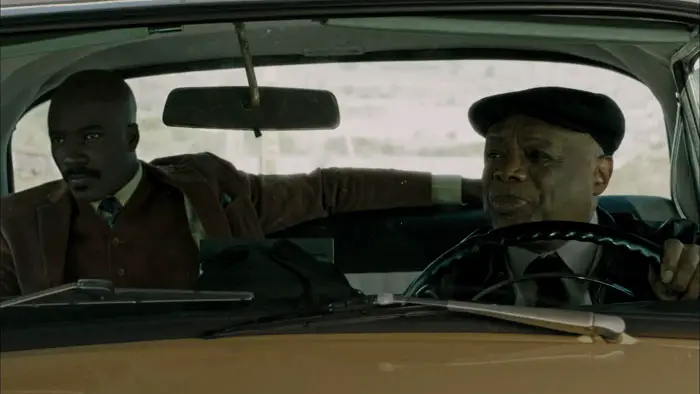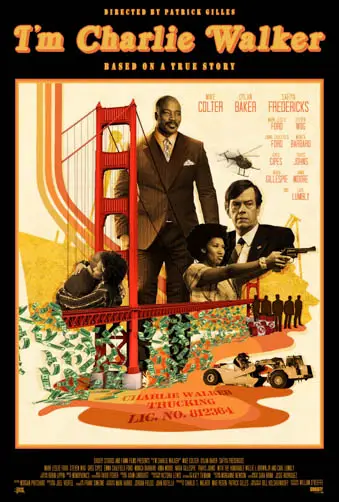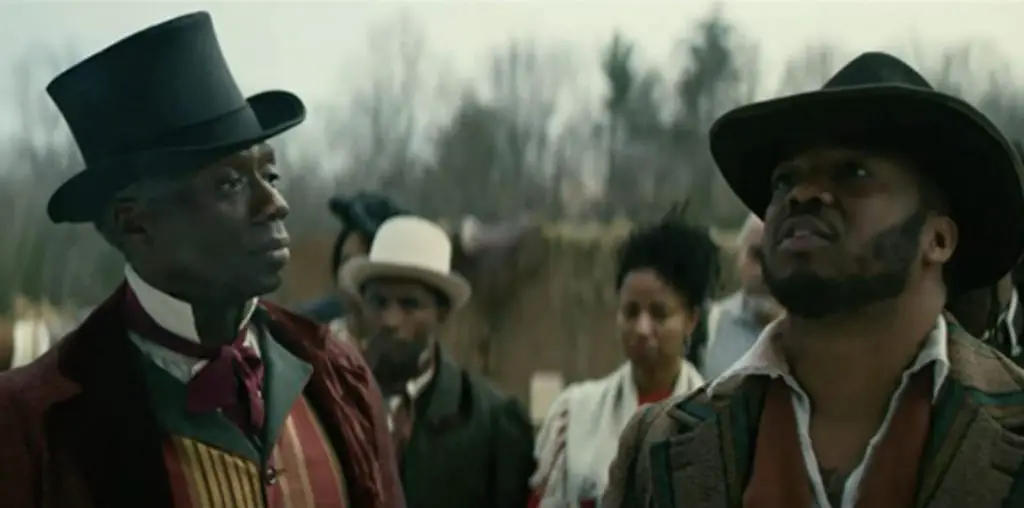
I’m Charlie Walker is based on the true story of when two oil tankers owned by the same company, Tower Oil, collided under San Francisco’s Golden Gate Bridge. The accident caused a massive oil spill and extensive environmental damage to Northern California’s coast and habitat. With no plan for a clean-up, hippies and corporate America faced each other head-on.
However, despite the news and confrontation of these opposing groups, the clean-up required massive coordination on the part of truckers. For one black trucker, Charlie Walker (Mike Colter), it serves as an opportunity to turn his single, rickety truck into a viable hauling business. Despite the inherent and widespread racism, he faces trying to feed his family, keep his home, and avoid being a life-long bricklayer.
Though the drama, set in 1971, bears a resemblance to a time that has passed, writer/director Patrick Gilles holds nothing back in revealing the vicious racism that reared its ugly head then and still does so today. Anytime Charlie approaches the white-owned/run trucking business he wants to join, he’s met with jeers. But the man was a fearless entrepreneur, quick thinker, and guided by intuition, and I’m Charlie Walker ultimately shows how a system can be beaten even if his dealings caught up with him in real life.

“Despite most people’s racist attitudes toward Charlie, he’s given a work order to clean up Stinson Beach…”
With an intelligent and steadfast wife (Safiya Fredericks) and obedient children at his side, Charlie manages to foil every poisoned arrow flung at him from Tower Oil company owner Mr. Bennett (Dylan Baker). That is because as the company scrambles to clean up its oil spill, it needs all truckers possible to do so. Despite most people’s racist attitudes toward Charlie, he’s given a work order to clean up Stinson Beach, an almost impossible scenario. Yet, the winds change in his favor, and he’s able to outperform anyone else in the clean-up effort. He reaches out to the Stinson Beach community, hires hippies and truckers to help, and is able to move the toxic sand with the right machinery. Charlie also makes a side deal with a road constructor to sell the contaminated sand, which eventually landed him behind bars for a few years, but that story is off-screen.
Gilles arranges and crafts I’m Charlie Walker very carefully, especially when it comes to the period setting. However, it lacks a certain sophistication that could purport something timeless. Often, the acting feels forced, scenes and dialogue are a bit chunky and very predictable. The film also doesn’t provide a symbiotic style to truly capture the early 1970s era as one would expect. This is a true story set in an iconic decade, so plenty of historical elements are available. Perhaps, the symbolic oil and water metaphor used in the opening title sequence could have added more weight and depth to the overall story with a more creative approach. However, Colter’s unique style and acting propel the film forward even if the rest of the cast and overall visual experience doesn’t quite match him.
Even still, I’m Charlie Walker is a great success story of beating down racial barriers. It is a straightforward narrative of racism where one man’s courage and refusal to give up provides an outlet for success and reform. And to this day, Charlie Walker is one of the most successful Black-owned and operated trucking companies in the history of San Francisco.

"…holds nothing back in revealing the vicious racism that reared its ugly head then and still does..."


